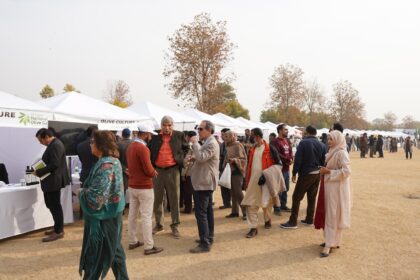Building a Future-Ready Workforce: National Skills University Islamabad and Its Partnership with VTIs Punjab
Nadeem Iqbal, Professor National Skills University Islamabad, Pakistan
Pakistan’s economic growth and competitiveness in the 21st century increasingly depend on its ability to build a skilled workforce capable of meeting the challenges of the Fourth Industrial Revolution. In this context, the National Skills University (NSU) Islamabad has emerged as a pioneering institution with a unique mandate: to develop a workforce that is not only educated but also work-ready. Unlike conventional universities that primarily emphasize theoretical knowledge, NSU bridges the gap between academic learning and practical application. Through its strategic focus on skills-based education and inter-institutional collaboration, particularly with vocational training institutes (VTIs) in Punjab, NSU holds immense potential to transform the country’s human capital landscape.
Global trends such as automation, artificial intelligence, and digitalization are reshaping labor markets at an unprecedented pace. Pakistan, with its large youth population, faces both a challenge and an opportunity. If properly equipped with modern skills, this demographic can drive productivity, attract investment, and foster innovation. However, if left untrained, the same youth bulge can exacerbate unemployment and economic instability. Therefore, institutions like NSU, in partnership with regional VTIs, become crucial for aligning education with labor market needs. NSU is the first public-sector university in Pakistan devoted exclusively to skills development. Its vision goes beyond classroom-based teaching to include applied learning, industrial linkages, and innovative teaching methods. By adopting a work-ready skills framework, NSU seeks to provide pathways from vocational certificates to higher education degrees, thereby unifying the fragmented technical and vocational education and training (TVET) ecosystem in Pakistan.
Punjab, being the most populous province of Pakistan, has a dense network of vocational training institutes under the Technical Education and Vocational Training Authority (TEVTA). These VTIs deliver short courses, diplomas, and certifications in trades such as electrical work, welding, auto mechanics, hospitality, and information technology. While VTIs play a vital role in providing entry-level skills to the workforce, they often face challenges such as outdated curricula, limited industry linkages, and insufficient opportunities for graduates to advance academically. This is where collaboration with NSU becomes particularly significant. NSU can work with VTIs in Punjab to develop standardized curricula that meet both local industry needs and international benchmarks. By integrating emerging fields such as robotics, renewable energy, and digital entrepreneurship into traditional trades, VTIs can remain relevant to the changing job market.
A key bottleneck in VTIs is the limited professional development of instructors. NSU, drawing on its academic and industrial partnerships, can design specialized training programs, workshops, and certifications for VTI teachers. This would not only enhance teaching quality but also ensure that trainers are familiar with modern technologies and pedagogical methods. NSU’s collaborations with international universities and industries also allow it to access advanced equipment and knowledge. By extending these resources to VTIs, NSU can promote technology transfer, enabling smaller institutes to benefit from modern laboratories, simulation tools, and e-learning platforms. Another area of cooperation is the establishment of joint certification schemes. If VTI graduates in Punjab receive credentials endorsed by NSU, their qualifications will gain greater national and international recognition. This improves employability, supports worker mobility, and strengthens confidence among employers in hiring VTI graduates.
NSU’s strong industry connections can be leveraged to provide VTI graduates with access to internships, apprenticeships, and job placements. Jointly organized job fairs, industry visits, and skill competitions would create direct pipelines between training and employment. For Punjab, which is home to thousands of VTI students representing the backbone of Pakistan’s technical workforce, collaboration with NSU can be transformative. A welder trained in a VTI could progress into advanced manufacturing through NSU programs, eventually gaining the ability to supervise projects or even innovate new techniques. Similarly, IT graduates from VTIs could transition into higher-level software engineering degrees at NSU, fostering entrepreneurial ventures in the digital economy. By offering such academic mobility, NSU ensures that vocational graduates are not limited to entry-level jobs but can grow into leadership positions.
The outcomes of such cooperation are far-reaching. Standardized curricula and trained faculty will enhance the quality of training, while industry-driven programs will increase employability and ensure direct relevance to the job market. VTI students will gain pathways to higher education without losing recognition for prior training. Punjab, as a hub of industry and agriculture, will benefit from a skilled workforce that supports economic diversification, while Pakistan overall will strengthen its position in attracting foreign investment and expanding exports. The transformation of Pakistan’s economy into a knowledge- and skills-based system is not possible without meaningful collaboration between universities and vocational institutes. The National Skills University Islamabad, with its unique mandate, is well-positioned to lead this transformation. By partnering with vocational training institutes in Punjab, NSU can create a seamless ecosystem of skills development that empowers youth, supports industries, and fosters sustainable economic growth. Such cooperation will not only bridge the gap between education and employment but also lay the foundation for a future-ready Pakistan.











